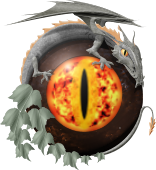- Cities and buildings
- Fields, plains and deserts
- Forests
- Hills and mountains
- Islands and promontories
- Lands, realms and regions
- Rivers and lakes
- Seas and oceans


 |
||
|


Which personality type are you?
Take the Free mydiscprofile Personality Test to discover your core personality and your ideal job.   Which personality type are you? |
|
Dates
Race
Settlements
Important peaks
The three peaks of Thangorodrim rose above Morgoth's stronghold of Angband
Pronunciation
mo'rgoth bow'gleer ('ow' as in 'now')
Meaning
'Black Enemy'
Other names
Titles
Bauglir, Black King, Craven, Dark Enemy, Dark King, Dark Lord, Dark Power of the North, The Enemy, Enemy of Men and Elves, Evil of the North, Giver of Freedom, Great Enemy, Great Shadow, King of the World, Lord of All, Lord of the Dark, Lord of the Darkness, Lord of Men, Lord of Middle-earth, Marrer of Middle-earth, Master of the Fates of Arda, Master of Lies, Power of the North, Power of Terror and of Hate
Note
Morgoth is the name of the first Dark Lord used after his theft of the Silmarils, when he was given this name by Fëanor. The events of that period are described in this entry, but Morgoth's origin and activites before his return to Middle-earth are given in the entry for his former name, Melkor.
|
MorgothThe First Dark Lord"Then Fëanor rose, and lifting up his hand before Manwë he cursed Melkor, naming him Morgoth, the Black Foe of the World; and by that name only was he known to the Eldar ever after."
Quenta Silmarillion 9
Of the Flight of the Noldor Return to Middle-earthAfter his theft of the Silmarils and destruction of the Two Trees, Melkor fled the Valar and returned to Middle-earth, as Fëanor cursed him and gave him a new name, Morgoth, the Black Foe of the World. Returning to his ancient fortress of Angband, far to the north of Beleriand, Morgoth made an Iron Crown for himself, with the three Silmarils mounted upon it. As Morgoth sat once again on his Dark Throne, Fëanor and the Noldor followed him into Middle-earth to make war for the recovery of the Silmarils. Grasping his chance to overcome his enemies before they even settled in the new lands, Morgoth sent vast armies to attack them in Mithrim, but the Orcs were scattered and destroyed. Fëanor himself set out to exact his own vengeance, but was ambushed by Balrogs and died of the wounds they gave him. Though Morgoth's greatest enemy among the Elves was thus destroyed, Fëanor's followers remained in Middle-earth, and their forces grew as they were joined by more Noldor under Fingolfin, who had crossed the grinding northern ice of the Helcaraxë to reach Middle-earth. After this first defeat, Morgoth sent messengers to the Elves to sue for peace, as he claimed, but instead he attacked the ambassadors of the Noldor and captured Maedhros son of Fëanor. He hung his prisoner by the wrist from the heights of Thangorodrim above Angband. Soon after this, Morgoth was astounded to see the Valar launch two brilliant lights into the sky: the newly made Moon and Sun. He sent out dark clouds from Thangorodrim to darken the sky and aid his night-sighted servants, and began to prepare in earnest for war. As these fumes belched from the mountains, Fingon son of Fingolfin climbed Thangorodrim and rescued Morgoth's prisoner, but Maedhros lost his right hand in that escape. The Siege of AngbandAfter Maedhros' rescue, the estranged branches of the Noldor began to heal their rifts, and to settle across the lands of Beleriand. Watching this, Morgoth judged that his enemies were in disarray, and chose his moment to strike once again. Sending out fires from the mountains, and shaking the earth, he sent out swarms of Orcs to strike west and east at the same moment. The Noldor were readier than Morgoth guessed, and the combined forces of Fingolfin and Maedhros wiped out every last Orc, chasing them down even beneath the heights of Thangorodrim. The Elves named that battle Dagor Aglareb, the Glorious Battle. After their victory they set a close watch on Morgoth's fortress, ringing it with the forces of the Noldor, and so began the long Siege of Angband. The Siege was an imperfect one: Angband lay beneath the range of the Iron Mountains, which formed an impassable wall preventing the Elves from surrounding Morgoth completely. This left a free passage into the cold north beyond the mountains, and at times Orcs would travel that way. Nearly one hundred years after the Siege began, Morgoth sent out an army of Orcs along the free northern route, that travelled southwards again along the shores of the Great Sea. They were attacked by Fingon and destroyed, and Morgoth sent out no further armies while the Siege of Angband lasted. Morgoth himself, it was said, left Angband once during the Siege. Learning of the Awakening of Men in the far east of Middle-earth, he hid himself in Shadow and passed eastward to discover the first Men in the land of Hildórien. It's unclear what occurred far in the east, but the history of Men carried a dark shadow that dated back to these events. Though Morgoth was contained for a time by the Eldar, he still had all the strength of Angband under his power, and he worked ceaselessly to build a way to overcome those who had followed Fëanor against him. In this time he began the making of the Dragons, and the first of these, Glaurung, set out from Angband before Morgoth had intended, and burned the grasslands of Ard-galen. Once again, Fingon led the defence of the Eldar, driving the young Glaurung back to his master in Angband. After Glaurung's failed foray across Ard-galen, no further significant attacks were sent out from Angband against the Elves while the Siege held. That time became known as the Long Peace: a time of nearly two hundred years in which the Elf-kingdoms of Beleriand grew strong and rich while the Siege of Angband in the north held Morgoth safely in check, or so it seemed. The Conquest of BeleriandOn a winter's night in the year I 455, Morgoth let loose the war that he had spent centuries preparing, and the Long Peace came to a sudden end. Out of Thangorodrim poured liquid fire, turning the plains of Ard-galen to ash, and poisons spread through the northern airs. Glaurung emerged once again, along with Balrogs and an army of Orcs vast beyond anything that had been seen before. This was the battle known by the Elves as the Dagor Bragollach, the Battle of Sudden Flame that saw the end of the Siege of Angband. Morgoth's assault was relentless, and continued even into the following spring, leaving most of the Noldor's northern defences in ruins. Seeing the extent of the devastation, Fingolfin the High King of the Noldor rode to Angband to offer single combat against Morgoth. Forced to accept, Morgoth suffered wounds in that battle, but inevitably Fingolfin was crushed by the Dark Lord. Now Morgoth held power over the northern lands, and one by one the last outposts of resistance were overcome. Finrod's tower of Minas Tirith on Tol Sirion fell to Sauron, and Barahir and his rebels in Ladros were slain, but for one who fled into the south. That outlaw was Beren, who was to prove that, despite the power he had won for himself, Morgoth was not invulnerable. In Doriath, Beren asked the hand of Thingol's daughter Lúthien, and Thingol set a seemingly impossible price: a Silmaril from Morgoth's Iron Crown. After an arduous journey, the two came to Angband's gates and used enchantment to pass inside. Lúthien sang before Morgoth himself, and used her power to send him to sleep, whereupon Beren cut a Silmaril from his Crown, and the two escaped. Seeing that Morgoth was not beyond assault even after breaking the Siege, Maedhros began to organise the peoples of the Eldar and the Edain for a huge counterattack on Angband. So, seventeen years after the Dagor Bragollach, Morgoth faced a vast array of armies that spread from west to east, and a battle of immense proportions was fought amid the dust of Anfauglith and the lands behind. The Dark Lord came close to defeat in that battle, but he had planned ahead: Easterlings that Maedhros had taken into his service revealed themselves suddenly as Morgoth's agents, and broke the armies of the Sons of Fëanor. With that, the forces of Morgoth's foes began to collapse, and in the end his victory was complete. Among Elves and Men that battle became known as Nirnaeth Arnoediad, the Battle of Unnumbered Tears. After the battle, all their northern defences were swept away, from Hithlum in the west to the March of Maedhros in the east, and Morgoth's creatures travelled into Beleriand with little hindrance. Now only three realms of any strength remained to oppose Morgoth: Doriath, Nargothrond and Gondolin. The Silmaril that Beren had captured proved the undoing of King Thingol, and he was slain by jealous Dwarves. In grief, Melian departed from Middle-earth, and though Doriath remained as a realm for a time, the loss of its King and Queen left it as no serious obstacle to Morgoth's conquest of Beleriand. In Nargothrond, Túrin persuaded King Orodreth to pursue open warfare, thus revealing his citadel to Morgoth's spies. Glaurung was sent south from Angband, and after routing Orodreth's armies at Tumhalad, went on to sack Nargothrond itself. Finally, through the betrayal of Maeglin, Morgoth discovered the Hidden City of Gondolin, against which he sent an overwhelming force. High King Turgon fell in the destruction of his city, and only a small band of survivors were able to escape. Now Morgoth's victory was all but complete. No great power remained to challenge him, and Elves and Men were scattered across Beleriand. Even in these straits, his enemies were divided among themselves. Desperate to recover the Silmaril, the Sons of Fëanor attacked the remnant of Doriath, and later the refugee community that had grown up at the Mouths of Sirion. The End of the First AgeThe Silmaril that had sown such discord vanished suddenly from Middle-earth: it was carried across the Great Sea by Eärendil on his voyage to Valinor, though it is doubtful Morgoth knew anything of this. He would soon discover the consequences, however, because Eärendil carried a plea for mercy and aid to the Valar, and the Valar granted his request. So, just as Morgoth appeared to have won an almost complete victory, he was suddenly attacked by the armies of the Valar under Manwë's herald Eönwë. The power of those armies was vast beyond anything yet seen, and Morgoth responded by launching his own strongest forces, including armies that stretched across Anfauglith, and the new winged Dragons. The result was the cataclysmic War of Wrath, in which the lands of Beleriand were shattered and broken. Morgoth at last saw that the forces of the Valar were too great to be defeated, and he hid himself deep in Angband, sending out a plea for peace to Eönwë. His plea was ignored: Angband was torn apart and Morgoth was captured and bound with the chain Angainor. The two Silmarils he still held were taken from him, and his Iron Crown was made into an iron collar. At last the Valar exiled Morgoth from the world altogether and sent him out into the Void beyond. An endless guard was set on the Walls of the World to prevent his return, and so Arda was freed from the most terrible of the Dark Lords The Legacy of MorgothThough Morgoth himself had been ejected from the world, the lies he had planted, and the shadow that he had left on Elves and Men continued to fester, and evil continued to arise among the Children of Ilúvatar. Morgoth's strongest legacy in Middle-earth, though, was his mighty lieutenant Sauron. Immediately after the War of Wrath, Sauron asked for pardon, but when Eönwë demanded that he return to Valinor for judgement, instead he hid himself in Middle-earth. Long after the forces of the Valar had returned across the Great Sea, Sauron emerged as a new Dark Lord in Morgoth's place. He spread evil and terror across much of the Second and Third Ages, and even managed to turn some of the Númenóreans to the worship of his master Morgoth. Morgoth himself, it seems, may not have been cast out forever. Prophecies of the Last Battle and the end of Arda are uncertain and difficult to reconcile, but all present a distinct fact: Morgoth will find his way back into the world before its end, and take his part in the Dagor Dagorath, the battle to end all battles. See also...Agarwaen, Aman, Amlach, Amon Rûdh, Amrod, Anach, Ancalagon, Ancient Darkness, Androth, Anfauglir, Anfauglith, Angband, Angrim, Angrist, Angrod, [See the full list...] For acknowledgements and references, see the Disclaimer & Bibliography page. Original content © copyright Mark Fisher 1997-2000, 2007. All rights reserved. For conditions of reuse, see the Site FAQ. Website services kindly sponsored by Discus from Axiom Software Ltd.Discus reports contain unrivalled DISC interpretations, including in-depth graphical and textual analysis in natural language. |